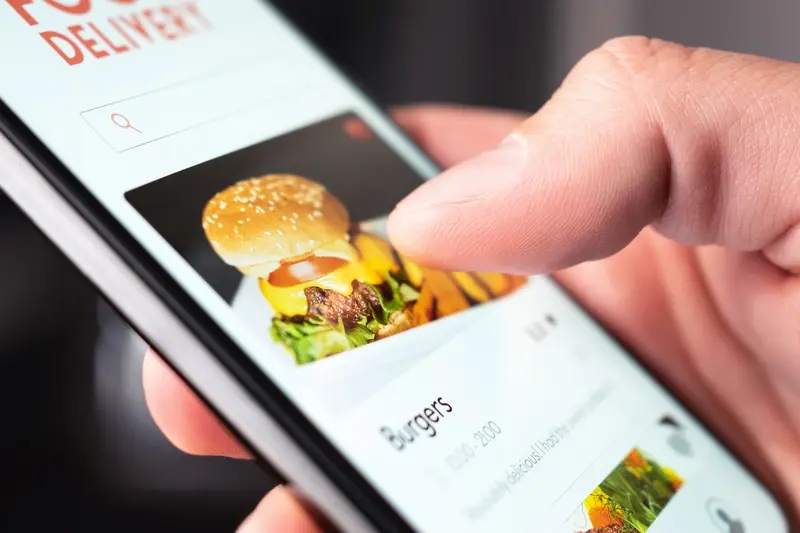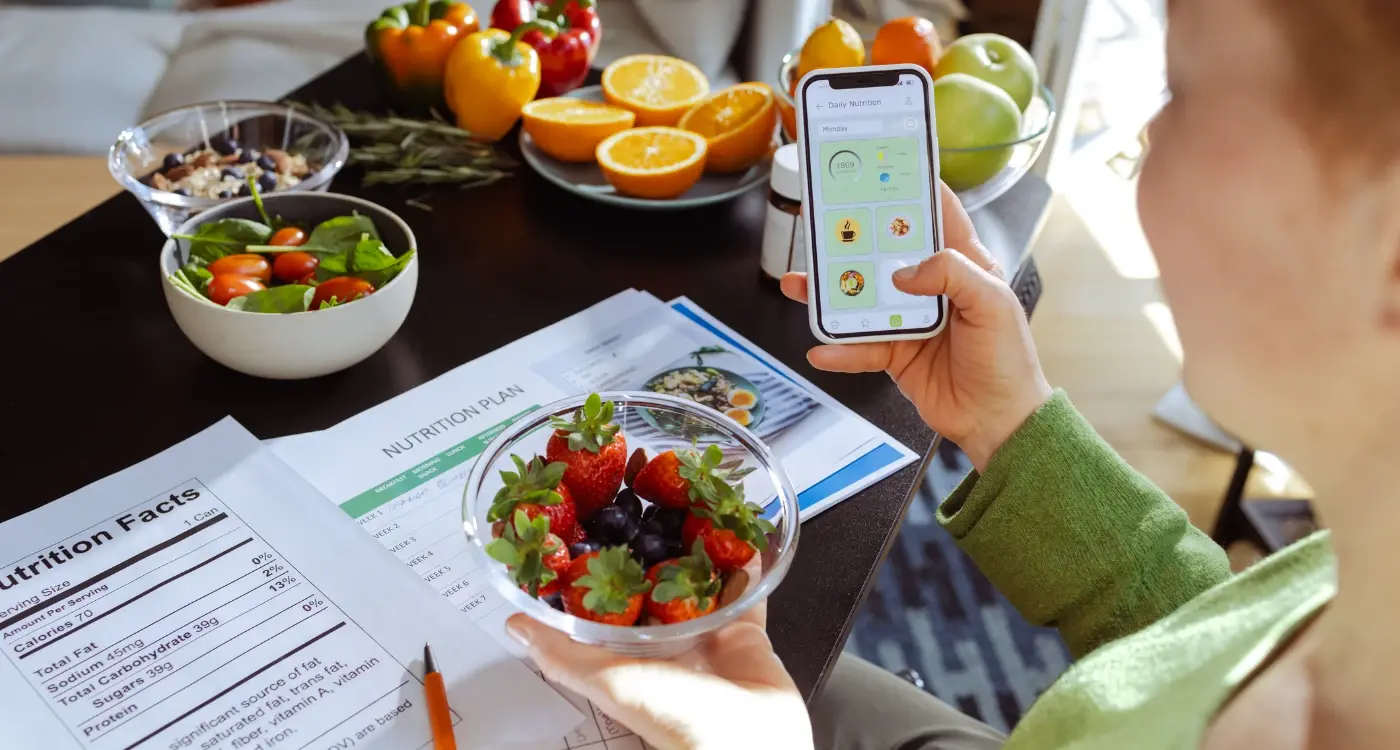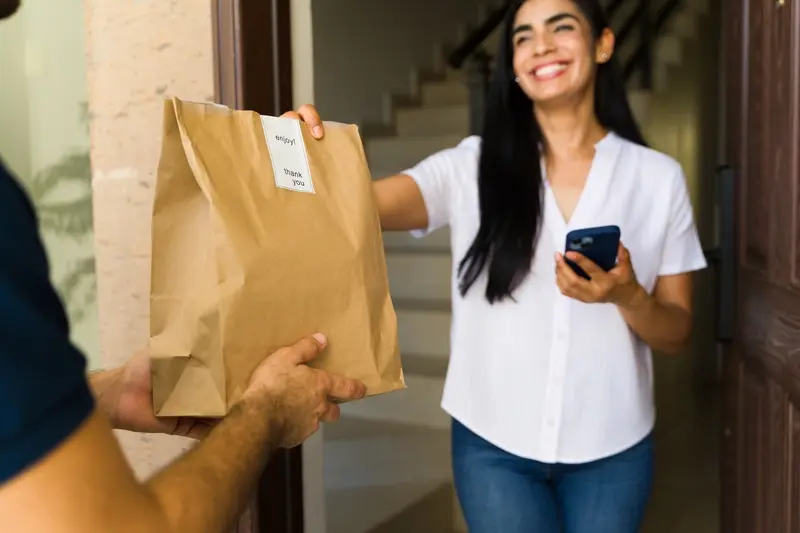What Are the Legal Requirements for Building a Food Delivery App in the UK?
A promising food delivery startup spent months perfecting their app design and securing restaurant partnerships, only to face legal action from data protection authorities and local councils just weeks after launch. They hadn't properly understood the complex web of UK regulations that govern food delivery platforms—from GDPR compliance to food safety standards and employment law. What started as an exciting venture quickly became a costly nightmare that could have been avoided with proper legal preparation.
Building a food delivery app in the UK isn't just about creating great technology and signing up restaurants. You're entering a heavily regulated industry where legal requirements span multiple areas of law, each with serious consequences for non-compliance. The penalties can range from hefty fines to complete shutdown of operations, making legal compliance absolutely non-negotiable from day one.
Understanding legal requirements isn't just about avoiding trouble—it's about building a sustainable business that customers and partners can trust from the ground up.
The challenge is that these legal requirements aren't all found in one place. You'll need to navigate business registration laws, data protection regulations under GDPR, food safety standards, consumer protection rules, employment legislation for delivery drivers, financial compliance for payment processing, and comprehensive insurance coverage. Each area has its own specific requirements and regulatory bodies, making it easy to miss something important if you don't approach this systematically. This guide breaks down everything you need to know about legal compliance for commercial delivery apps, helping you build a platform that's not only innovative but legally sound.
Understanding UK Business Registration and Licensing Requirements
Setting up a food delivery app in the UK means you'll need to register your business properly from the start. Most food delivery platforms operate as limited companies because they offer better protection for your personal assets—something you'll definitely want when dealing with food safety regulations and potential liability issues.
You'll need to register with Companies House and get your Certificate of Incorporation before you can legally start trading. This process typically takes a few days and costs around £12 if you do it online. You'll also need to register for Corporation Tax within three months of starting to do business, not just when you start making profit.
Key Registration Steps
- Register your company name with Companies House
- Appoint directors and shareholders
- Register for Corporation Tax with HMRC
- Set up PAYE if you plan to employ staff
- Register for VAT if your turnover exceeds £85,000
- Obtain necessary local authority licenses
Here's where it gets a bit more complex—you might not need a food business license yourself if you're just the platform connecting restaurants with customers. But if you're handling food preparation, storage, or delivery directly, you absolutely will need to register as a food business with your local authority at least 28 days before you start operating.
Ongoing Compliance Requirements
Once you're registered, you'll have ongoing responsibilities including filing annual accounts, confirmation statements, and keeping statutory registers up to date. Many app founders underestimate the administrative burden here—it's not just a one-time setup. You'll also need to consider whether your business model requires any additional licenses, particularly if you're planning to sell alcohol or operate in multiple local authority areas across the UK.
Data Protection and Privacy Compliance Under GDPR
When you're building a food delivery app, GDPR isn't just another box to tick—it's probably one of the most important legal requirements you'll face in the UK. The General Data Protection Regulation affects every piece of personal information your app collects, from email addresses to delivery locations.
Your food delivery app will handle masses of personal data. Customer names, addresses, phone numbers, payment details, order history, and location tracking all fall under GDPR protection. What makes this tricky is that users often don't realise just how much data they're sharing when they place an order or track their delivery driver.
Key GDPR Obligations for Your App
- Obtain clear consent before collecting any personal data
- Allow users to access, modify, or delete their personal information
- Implement strong security measures to protect stored data
- Report data breaches to the ICO within 72 hours
- Appoint a Data Protection Officer if processing large amounts of data
- Conduct privacy impact assessments for high-risk processing
The penalties for getting GDPR wrong are severe—fines can reach £17.5 million or 4% of your annual turnover, whichever is higher. But beyond the financial risk, a data breach can destroy customer trust overnight.
Practical Steps for Compliance
Start by creating a clear privacy policy that explains what data you collect and why. Your app needs granular consent options—users should be able to agree to essential cookies whilst declining marketing ones. Build data retention policies from day one; you can't keep customer data forever just because it might be useful later.
Always use "privacy by design" principles when developing your app—build GDPR compliance into your code architecture rather than trying to bolt it on afterwards.
Working with third-party services like payment processors or analytics tools? Make sure they're GDPR compliant too, because you're responsible for your users' data even when someone else is processing it.
Food Safety Standards and Hygiene Regulations
When you're building a food delivery app in the UK, food safety isn't just about keeping customers happy—it's about keeping them safe. The Food Standards Agency oversees all of this, and they take it very seriously. Your app will need to work with restaurants that follow proper food hygiene rules, and you'll need to understand what that means for your business.
Every restaurant on your platform must be registered with their local authority and have a food hygiene rating. You know those green stickers you see in restaurant windows? That's what we're talking about. The ratings go from 0 to 5, with 5 being the best. While restaurants can legally operate with lower ratings, most delivery platforms choose to work only with places that have decent scores—usually 3 and above.
Your Role in Food Safety
As a platform operator, you're not directly handling food, but you still have responsibilities. You need to make sure the restaurants you partner with are legitimate and registered. Some apps display hygiene ratings right on the restaurant listings, which helps customers make informed choices and shows you're taking safety seriously.
Keeping Records and Staying Compliant
You'll want to keep records of all your restaurant partners' registration details and hygiene ratings. This protects you if there are any issues later on. The local trading standards office can ask to see these records, so having everything organised makes life much easier. Regular checks on your partners' ratings are a good idea too—ratings can change over time, and you don't want to be caught off guard with a restaurant that's dropped to a 1 rating still taking orders through your app.
Consumer Protection Laws and Trading Standards
When you're building a food delivery app, you're not just creating technology—you're becoming a marketplace that connects customers with restaurants. This means you need to follow the same consumer protection rules that apply to any business selling goods or services in the UK.
The Consumer Rights Act 2015 is your main concern here. It covers everything from how you describe services on your platform to what happens when orders go wrong. Your app must provide clear, accurate information about delivery times, costs, and restaurant details. If a customer orders a meal and it doesn't arrive, or arrives cold and inedible, they have legal rights—and your platform might be responsible for helping sort it out.
Pricing Transparency and Terms
Your pricing structure needs to be crystal clear from the start. Delivery fees, service charges, and any other costs must be shown before customers complete their purchase. Hidden charges are a big no-no under UK trading standards. You also need proper terms and conditions that explain how cancellations work, what happens with refunds, and who's responsible when things go wrong.
The key is making sure customers know exactly what they're paying for before they tap that order button—surprises at checkout are a sure way to end up in hot water with trading standards
Handling Complaints and Refunds
You'll need a clear process for handling complaints and issuing refunds when orders don't meet expectations. The Consumer Contracts Regulations give customers specific rights when buying online, including cooling-off periods in some circumstances. Your app should make it easy for customers to report problems and get their money back when appropriate. Trading Standards officers take a dim view of businesses that make it difficult for customers to complain or get refunds.
Employment Law and Delivery Driver Classification
The biggest legal headache for food delivery apps in the UK isn't data protection or food safety—it's figuring out whether your delivery drivers are employees, workers, or self-employed contractors. Get this wrong and you could face hefty fines, back-pay claims, and serious legal trouble.
Most food delivery platforms classify their drivers as self-employed contractors. This means the drivers handle their own tax, don't get holiday pay or sick leave, and can theoretically work whenever they want. Sounds simple, right? Well, not quite. The government and employment tribunals look at how much control you have over drivers, not just what your contract says.
What Makes Someone an Employee or Worker?
If you dictate when drivers work, what routes they take, or penalise them for rejecting orders, they might legally be workers or employees—even if your contract says otherwise. Workers get minimum wage and holiday pay; employees get even more rights including protection from unfair dismissal.
The key test is control and substitution. Can drivers send someone else to do deliveries for them? Do they genuinely run their own business? Or are you essentially managing their work like a traditional employer would?
Protecting Your Business
To stay on the right side of employment law, give drivers genuine flexibility. Let them choose their hours, accept or reject orders without penalties, and work for competitors. Document this flexibility clearly—employment tribunals will scrutinise your actual practices, not just your paperwork. Many successful delivery apps have faced expensive legal challenges over driver classification, so getting proper legal advice before launching is money well spent.
Financial Regulations and Payment Processing Compliance
When you're building a food delivery app that handles payments, you're stepping into a world of strict financial regulations. The Financial Conduct Authority (FCA) oversees most payment processing in the UK, and they don't mess about when it comes to compliance. Your app needs to follow their rules—or you could face hefty fines and lose the right to process payments altogether.
The Payment Services Regulations 2017 are your main concern here. These regulations require strong customer authentication for most transactions, which means your customers need to verify payments using at least two different methods. Think of it as entering a PIN and using a fingerprint scanner. You'll also need to implement fraud monitoring systems and keep detailed records of all transactions.
PCI DSS Compliance Requirements
If you're handling card payments directly, you must comply with PCI DSS (Payment Card Industry Data Security Standard). This covers how you store, process, and transmit cardholder data. Many app developers work with payment processors like Stripe or PayPal to avoid dealing with this directly, but you still need to meet certain requirements.
Consider using a PCI-compliant payment gateway rather than handling card details yourself—it'll save you months of compliance headaches and reduce your regulatory burden significantly.
Money Laundering Regulations
You might think money laundering doesn't apply to food delivery, but if your app processes more than €1,000 in transactions per customer, you could fall under anti-money laundering regulations. This means customer verification checks and transaction monitoring for high-value data.
| Regulation | Key Requirement | Applies When |
|---|---|---|
| PSD2 | Strong customer authentication | All payment transactions |
| PCI DSS | Secure card data handling | Processing card payments |
| MLR 2017 | Customer verification | High-value transactions |
Insurance Requirements and Liability Protection
Running a food delivery app means you're juggling quite a few moving parts—and each one comes with its own risks. You've got drivers zipping around town, restaurants preparing food, customers waiting for their orders, and payment systems processing transactions. When something goes wrong (and trust me, it will at some point), you need proper insurance cover to protect your business.
The type of insurance you'll need depends on how your app operates. If you employ delivery drivers directly, you'll need employers' liability insurance—this is actually a legal requirement in the UK. You'll also want professional indemnity insurance to cover you if your app malfunctions and causes financial loss to restaurants or customers. Public liability insurance is another must-have; it protects you if someone gets injured or their property gets damaged because of your business operations.
Key Insurance Types for Food Delivery Apps
- Employers' liability insurance (legally required if you have employees)
- Professional indemnity insurance for app-related failures
- Public liability insurance for general business operations
- Cyber liability insurance for data breaches and cyber attacks
- Product liability insurance if you're liable for food quality issues
Here's where it gets tricky though—if your drivers use their own vehicles, they need proper commercial insurance. Standard car insurance won't cover them for business use. You'll need clear terms and conditions that specify who's responsible for what, and you might want to consider providing insurance support or requirements for your delivery partners.
Protecting Against Digital Risks
Don't forget about cyber liability insurance either. Your app handles personal data, payment information, and business data from restaurants. If hackers breach your systems or if there's a data leak, the costs can be enormous—both in terms of fines and compensation claims.
Conclusion
Building a food delivery app in the UK isn't just about creating something that looks good and works well—you need to make sure it follows all the legal requirements too. From the moment you register your business right through to handling customer data and managing your delivery drivers, there are regulations at every step that you simply can't ignore.
The GDPR rules around data protection are probably the most complex part of the whole process; getting this wrong can result in some seriously hefty fines that could sink your business before it even gets started. Then you've got food safety standards to think about, consumer protection laws, employment regulations, and financial compliance requirements. It's quite a lot to wrap your head around!
What I've learned over the years is that tackling these legal requirements early saves you massive headaches later on. You don't want to be halfway through developing your app only to discover you need to completely change how you handle payments or restructure your entire driver employment model. That's expensive and time-consuming—trust me on this one.
The good news is that once you understand what's needed, most of these requirements become part of your standard operating procedure. You build them into your app from day one, you create processes that keep you compliant, and you make sure your insurance covers all the right areas. It becomes second nature after a while, and your customers will have much more confidence in using an app that clearly takes their safety and privacy seriously.
Share this
Subscribe To Our Learning Centre
You May Also Like
These Related Guides

What Legal Requirements Must My Delivery App Meet For Commercial Use?

What's the Best Way to Handle Food Allergies and Dietary Requirements in My App?



